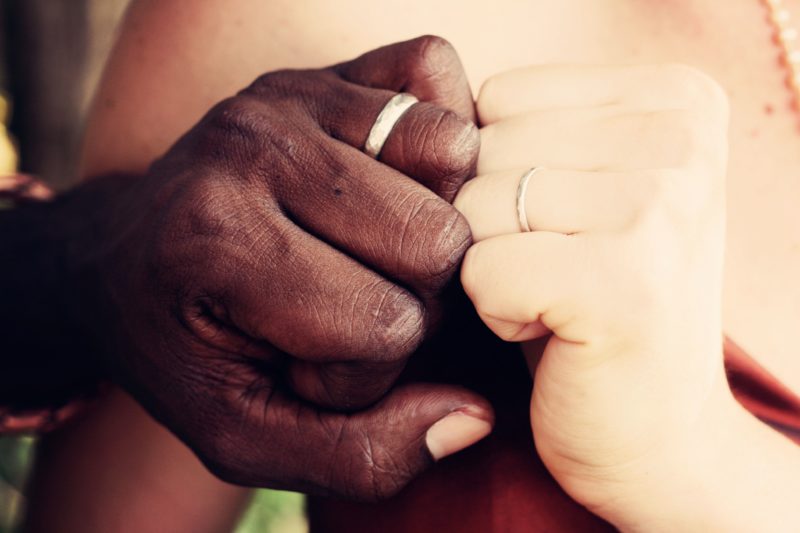Views: 113
Do any of the following situations sound familiar to you?
Your friend, coworker, or partner uses threats of violence to manipulate your behavior.
Your friend, coworker, or partner constantly belittles you and your choices, insists that your decisions are wrong, or uses other emotional tactics to influence your actions.
You have a friend who constantly gets her way, who makes all of the decisions, and refuses to participate if her demands are not met.
Someone only calls you when she is in need of something: a favor, money, etc.No matter how many times you help her or what you have given her, she never reciprocates.
You find yourself reacting to demands by engaging in passive-aggressive behavior, going along with the other person despite not wanting to do so, because it is easier than the confrontation which would ensue if you stood up for yourself.
Dealing with this person leaves you feeling drained, physically and emotionally, and doubting your own self-worth.
If you identify with any of the scenarios listed above, you may be part of a toxic relationship.
Is Your Relationship Toxic?
A toxic relationship is one in which one partner controls the other via physical, mental, or emotional manipulation. Instead of exhibiting the equality, caring, and mutual self-respect of a healthy relationship, these dysfunctional relationships are characterized by an imbalance of power in which one partner uses a variety of methods to insure that her needs are always met, often at the detriment of the other.
When one speaks of abusive relationships, many immediately think of romantic partnerships. While this is certainly a problem in modern society, toxic relationships are not limited to those who are romantically entwined. They also include friendships and working relationships. Any situation in which one individual abuses the bonds with others has the potential to be toxic.
As illustrated by the situations listed above, there are a number of characteristics which are common in a toxic relationship. While not all of these symptoms need be present, many will be.
One partner is in control of the relationship. She decides where they will go, when they will get there, and what they will do upon arrival.
This individual makes sure that her demands are met using a number of techniques ranging from physical abuse and the threat of physical abuse to verbal bullying, from mental and emotional manipulation.
The individual not in control feels powerless to confront or contradict the one in power. She will acquiesce to the demands of her friend, despite a lack of interest in the proposed activity.
The relationship is a “One Way Street,” with the person in control receiving all of the benefits of the relationship.
The powerless individual may find herself acting out in uncharacteristic ways as a result of feelings of helplessness and lack of control. She may participate in activities in a minimal way, performing poorly because her heart is not in it. She may agree to activities, but then complain throughout the time together in an unconscious attempt to shorten the activity. She may engage in passive-aggressive behavior in an attempt to make the person in control uncomfortable.
Interactions of this sort often leave the powerless partner feeling emotionally and physically drained. During the activity there may be a component of fear as she tries to avoid angering the person in control. Fear of retribution, once it has dissipated, leaves one exhausted.
The Toxic Friend — Recognizing Bullying
The most obvious type of bullying, the one which is most identifiable, is one which carries with it the implied or overt threat of physical violence. This has become a well-recognized topic, often associated with romantic relationships as well as other interactions. Physical bullying, however, is by no means limited to these areas.There are many instances of friendships which carry with them the threat of violence.
It is important to note, however, that there are other, more subtle, types of bullying. These may be more prevalent in friendships which meet the definition of a toxic relationship. As with romantic relationships, bullying in a toxic friendship can, and often does, include an element of emotional manipulation. The techniques of mental and emotional manipulation can vary widely.
There is the friend who belittles someone, constantly pointing out her flaws and shortcomings, be they physical, emotional, or a lack of other companions. This person makes her friends feel like she is doing them a favor by participating in activities with them. Without the bully, they insist, you would have no one. “Your choice is to be with me or be alone.”
There is the friend who guilts others into being with her and doing what she wants to do. She may insist that “We always do what you want to do.”Even though this is not correct, it implies a give and take which does not exist. It is easy to fall into the trap of thinking “If we do what she wants to do this time, we can do something I want to do next time.” Unfortunately, there is no “next time” that fulfills this wish.
There is the friend who may acquiesce to other’s wishes, only to make their lives miserable. She may allow someone else to choose the restaurant, but will complain about the service, the food, the atmosphere, the parking, the other diners, and anything else which comes to mind. One learns quickly that there is no point in trying to do anything other than what she wants to do. Anything else will simply be a miserable experience.
Why are these toxic individuals the way they are? Why are they self-centered, unreliable, and manipulative? It should come as no surprise that there are a number of answers to this question as well. Bear in mind that the following descriptions do not seek to excuse toxic behavior, only explain it.
Some individuals are reacting to stressors in their own lives. When one feels out of control in one aspect of life, due to other relationships, occupational demands, poor physical health, or any one of a number of other reasons, she may seek to exert control in another aspect of her life. This may be a temporary solution to a personal feeling of powerless and could be easily redressed.
Others may show the lack of empathy and awareness of others that are traits of true sociopathy. There is no changing these individuals. In fact, any attempt to do so may result in an escalation of toxic behavior.
Finally, there are those who bully, manipulate, and engage in other negative behavior for the simple reason that they have learned that these actions are rewarding. If they push hard enough, they will get what they want. Why bother to enter into a reciprocal exchange when one can act in such a way that they achieve their goals without having to give anything up?
Does It Take Two To Tango?
Those who are on the receiving end of this type of toxic behavior may end each interaction with their bullying friend with the same question: Why do I put up with this?
 I deserve it. Low self-esteem may be part of the answer. If one is told throughout her life that she does not deserve good things, it is only natural that she will come to internalize this idea. The toxic bully reinforces this self-image with every interaction. The first thing that you must realize is that no one deserves to be treated poorly.
I deserve it. Low self-esteem may be part of the answer. If one is told throughout her life that she does not deserve good things, it is only natural that she will come to internalize this idea. The toxic bully reinforces this self-image with every interaction. The first thing that you must realize is that no one deserves to be treated poorly.
In one sense, being part of a toxic relationship is actually easy. There is no need to plan for oneself when you know someone else is going to tell you what to do. The rules of the relationship are spelled out quite clearly. You do what the other person says and you avoid negative consequences.
What else is there? If one has been constantly manipulated, whether it is physically or emotionally, one comes to question the reality of any other kind of relationship. If you convince yourself that there is some aspect of bullying and manipulation in every relationship, it becomes easy to convince yourself that there is no reason to look for a different friendship. You are already familiar with the devil you know, after all.
Stop The Music
If you found yourself nodding as you read the previous section, there are some important things which you must know. First off, none of the negative things which you have endured are your fault. The bully is to blame, not you. Secondly, there are different types of friendships out there. It is possible to bond with people because of mutual shared interests. There are people who will engage in mutually beneficial relationships. There are people who will want to be with you because of who you are, not because of what you can do for them. Finally, and most importantly, you deserve better treatment. This may mean confronting the other half of your current toxic friendship or looking for new relationships.
There are a number of different tactics for dealing with bullying behavior and changing toxic relationships into healthy ones. Before we address those, we should reinforce two ideas.
Know that you deserve better. This is the key to any potential change. Everything discussed below hinges upon the knowledge that you are worth more than you have been getting.
Bullying, physical abuse, emotional manipulation, and other aspects of toxic relationships are unacceptable behaviors. These are things which the bully does and they are not OK.
If you are ready for a better relationship, there are some things which you may want to try:
The simplest answer but potentially the most difficult is to end the relationship altogether. This means not receiving phone calls, not answering texts, ignoring any of the manipulative behavior which will restart the cycle of toxicity. It seems like an easy fix, but when one has invested time and energy into a friendship, even one which is not beneficial to one’s own well-being, it can be difficult to end. This is even more difficult if the relationship has an element of physical abuse. If this is the case, make sure that you are safe and there is no chance of physical repercussion. This may involve outside assistance from family, other friends, or the authorities. There are many programs and shelters which may also provide assistance. Above all, be careful and act in such a way to protect yourself.
If you do not wish to end the relationship, it will be necessary to address the bully. Point out the behaviors that are unacceptable. Again, if there is an aspect of physical abuse, take extreme care when doing so. It is likely that the other person will become agitated, angry, or upset during this conversation. Remain firm in your stance that the toxic behavior will not be tolerated. It is also important to remain calm during this discussion. The conversation may start to escalate into an argument. Do not engage the bully in name calling, threats, or similar behavior. Simply reiterate what needs to change and why.
It is extremely important to not back-slide. If, after a few weeks of better behavior, the old methods of manipulation begin to creep up again, point them out in a calm, non-aggressive manner. Restate that these are the actions which will not be tolerated.
Regardless of how you choose to deal with the toxic person in your life, it is beneficial to find other friends with whom you can relate to. Not only will these people provide companionship should the toxic friend exit the picture, they will also provide examples of how a friendship should work. Moreover, they will reinforce the idea that you can be part of a healthy relationship and deserve to have good friends.
http://shenitaetwaroo.blogspot.com/2014/04/bullying-and-toxic-relationships.html
Posted by Shenita Etwaroo
Dr. Shenita Etwaroo is an author, artist, animal advocate, activist, and a vegan, who has devoted her life to helping the voiceless for the glory of God.In memory of her beloved Neo and animal companions, she has been aligned with animal rights groups and human rights groups, and shelters to spread awareness and protest injustice.Her works of fiction and non-fiction alike are homage to an active voice for the innocent, oppressed, and vulnerable everywhere.













